1. Theodicy - A philosophical attempt to solve the problem of evil
1.1. AUGUSTINE - SOUL DECIDING
1.1.1. God is the Creator, he is good and omnipotent
1.1.2. Creation is therefore good and in the beginning it was perfect
1.1.3. God installed a hierachy of beings: Angels, Humans, Animals
1.1.4. Evil came about because of a lack of goodness in the world
1.1.5. Angels and humans gave into temptation and started to sin. This first occurs in Adam and Eve.
1.1.6. Evil is good in the world because it highlights what is good
1.1.7. Disharmony in the world leads to the fallen angels causing natural evil
1.1.8. Free will is valuable and a gift from God - so moral and natural evil occurs when people do bad things
1.1.9. CRITICISMS
1.1.9.1. Plausability - Science has a completely different world view than the one in Genesis. Many don't believe in angels.
1.1.9.2. The world has developed over 4 billion years, the discovery of evolution and natural selection explains the apparent cruelty in nature
1.1.9.3. We are not all related to Adam and therefore can not be born with 'original sin'. We know that we have evolved very differently from the way Genesis suggests
1.1.9.4. How could a perfect world that is created by an omnipotent creator go wrong? This is a category FAIL.
1.1.9.5. If God created the world then he is responsible for natural evil. Again, the world is not perfect as Augustine suggests.
1.2. IRENAEUS - SOUL MAKING
1.2.1. God is the Creator, he is good and omnipotent
1.2.2. Creation is embryonic and develops over time
1.2.3. Human beings are created in the image of God and are imperfect - they have to grow into the likeness of God
1.2.4. Evil is present in creation so that people have an opportunity to grow into that likeness (eg acts of goodness following an earthquake)
1.2.5. There is an epistemic distance (knowledge gap) between God and humans - we can not know fully what God intends for us
1.2.6. So, we have an opportunity to grow into a relationship with God and find out. We can, eventually, grow into the likeness of God - but not in this life
1.2.7. Free will is an important part of creation so that we know the difference between right and wrong.
1.2.8. CRITICISMS
1.2.8.1. Do the ends justify the means? Would you whack a puppy before it does something wrong? Why would a good god set traps for humanity to teach them what good is?
1.2.8.2. Is suffering a price worth paying to grow into the likeness of God? Can we know what the likeness of God is anyway?
1.2.8.3. What is the point of suffering and learning what good is if you can not grow into the full likeness of God until you are dead? (cf. Kant's Moral Argument)
1.2.8.4. God is responsible for the evil and suffering in the world. Again, does this make him good?
1.2.8.5. If God was more visible and accesible to human beings they would not have the need to do evil things because they would just accept him
2. Conclusion
3. Conclusion
3.1. These are the classic religious reponses to evil so should not be dismissed out of hand
3.2. However, there is a lot of legitimate criticism of them
3.3. Many though agree that Free Will is an essential part of what it is to be human, we therefore make our own choices
3.4. We also clearly learn from making mistakes
3.5. But, many questions are raised about God's nature.
3.6. REMEMBER - Evil does not disprove God's existence, but it does question his power and goodness. (Remember The Sim Theory!)
4. Types
4.1. Natural (Nature inflicted)
4.1.1. Hurricanes
4.1.2. Earthquakes
4.1.3. Chickens
4.2. Moral (Human inflicted)
4.2.1. Murder
4.2.2. War
4.2.3. Rape
